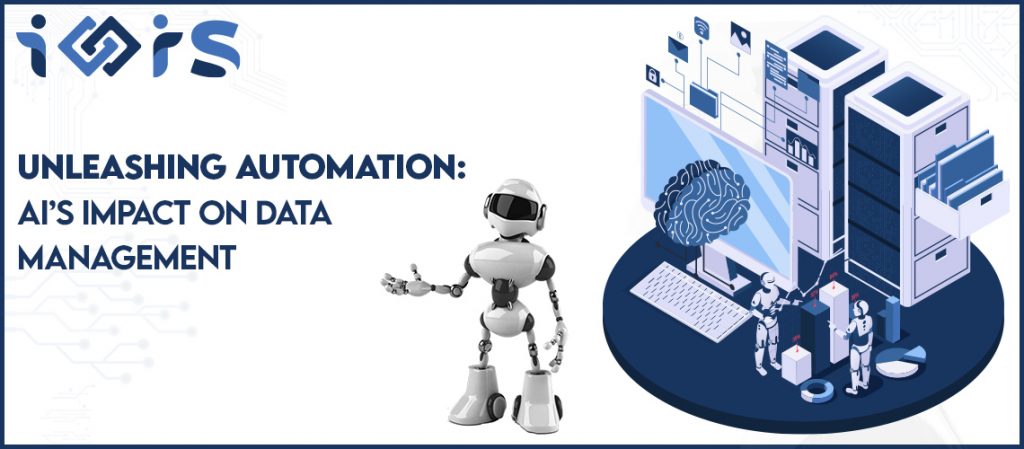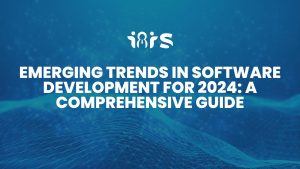These days, companies generate a massive amount of information, especially when it comes to details about their products. Even with Product Information Management (PIM) systems making it easier to organize and centralize this data, the challenge of efficient data management persists due to its continuous growth. This is where Artificial Intelligence (AI) steps up. AI changes how companies handle PIM, making data management more streamlined, accurate, and efficient.
The Impact of AI on PIM
AI has become a game-changer in PIM. It brings automation and advanced analytics, making it easier for businesses to organize, manage, and distribute product information effectively.
Let’s delve into some specific ways AI contributes to PIM:
1. Data Improvement
AI algorithms extract valuable insights from large datasets, enhancing the accuracy and completeness of product information. They also fix errors, remove duplicates, and ensure consistency, building trust with customers and reducing returns.
2. Sorting and Organizing
AI automates the categorization of products based on attributes, descriptions, and visuals. This saves time and makes it simpler for customers to find what they’re looking for.
3. Personalized Recommendations
AI analyzes customer behavior and preferences to offer personalized product recommendations. It also helps create tailored descriptions and marketing content, influencing customer experience and conversions.
4. Data Cleaning and Standardization
AI automates the cleaning and standardizing of product data, ensuring accuracy and improving data quality. By removing conflicting information, AI helps maintain consistent product details across different platforms.
5. In-Depth Analytics
AI-driven analytics provide actionable insights into product data, aiding data-driven decision-making. It identifies trends, patterns, and correlations, guiding product development, pricing strategies, and marketing campaigns.
Companies Embracing AI in PIM
Numerous companies have harnessed the power of AI in their PIM solutions, achieving successful integration into their operations.
For instance, Amazon utilizes AI algorithms to extract product information, ensuring correct and up-to-date product listings. Similarly, Walmart employs AI-powered chatbots to handle customer queries and provide real-time product information. Alibaba tailors its PIM strategy with AI for a highly personalized shopping experience, and Best Buy uses AI-driven product taxonomy for improved product categorization.
Technologies Fueling AI in PIM
Implementing AI in PIM involves a blend of various technologies:
- Natural Language Processing (NLP): Helps AI understand and interpret unstructured data like product descriptions.
- Machine Learning (ML): Uses algorithms to learn from past data, aiding tasks like data entry and product categorization.
- Computer Vision: Enables the analysis of product-related images and videos, improving product search and catalog visuals.
- Data Integration and APIs: Facilitates the exchange of data between PIM systems and various platforms, ensuring up-to-date product information.
- Cloud Computing: Provides the infrastructure for running resource-intensive AI algorithms and handling large data volumes.
- Data Management and Quality Tools: Ensures accurate and reliable data in AI-powered PIM systems, aiding in data cleansing and validation.
Benefits of AI in PIM
The use of AI in Product Information Management brings several advantages:
- Automated Data Management: AI automates tasks like data entry, reducing manual effort and errors.
- Enhanced Customer Experience: AI analyzes customer behavior for personalized product recommendations, improving engagement and satisfaction.
- Advanced Analytics: Extracts valuable insights from product data, guiding strategic decision-making.
- Scalability: Efficiently handles large data volumes, allowing businesses to scale operations.
- Competitive Advantage: Streamlines data management, offers personalized experiences, and keeps businesses ahead in the market.
Challenges in Implementing AI in PIM
Despite the benefits, implementing AI in PIM poses challenges:
- Data Quality and Integration: Ensuring accuracy, consistency, and compatibility of data from multiple sources.
- User Adoption and Change Management: Overcoming resistance from employees unfamiliar with AI and addressing concerns through training and communication.
- Expertise and Talent Acquisition: The need for skilled professionals in AI technologies, data analysis, and management.
- Ethical and Legal Issues: Ensuring AI adherence to ethical standards, avoiding biases, and complying with data privacy regulations.
- Cost and Resource Allocation: Managing the significant costs involved in AI implementation, including infrastructure, software, and talent.
- Scalability and Performance: Balancing optimal performance with growing data volumes and user demands.
Future Trends in AI for PIM
The future of AI in PIM holds exciting possibilities:
- AI-driven Chatbots: Providing exclusive product suggestions and assistance to customers, enhancing engagement.
- Integration with IoT Devices: Collecting real-time data for optimizing product information and customer experiences.
- Visual Content Understanding: AI models comprehending and extracting information from visual content like images and videos.
In Conclusion
Artificial intelligence is reshaping product information management. By leveraging AI in PIM solutions, businesses can achieve streamlined data management, improved accuracy, enhanced customer experiences, and efficient cross-channel communication. Despite existing challenges, the future promises substantial potential for gaining a competitive edge in our data-driven world.





